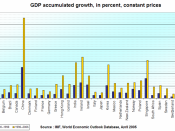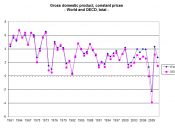� PAGE \* MERGEFORMAT �2�
CONVERTIBILITY OF
BLACK MONEY
TO
WHITE MONEY
�
Contents
Page
What is black money? 3
Why is there a shadow economy? 3
Consequences of the underground economy and tax evasion 4
The Shadow Economy in India 5
Convertibility of black money to white money 5
Conclusions 7
Appendix 8
Bibliography 10
1. What is black money?
Black money is essentially the currency used in 'black economy'. Black, shadow, underground, unobserved, unofficial, subterranean, unrecorded, informal, irregular, second, twilight, parallel - are all the synonyms used for the 'shadow economy'. The shadow economy basically consists of legal and illegal activities outside the reach of the government.
Smith (1985, p.18) provides a very broad definition of the shadow economy as 'market based production of goods and services, whether legal or illegal, that escape detection in the official estimates of GDP'. Table 1 gives a better view of what a reasonable definition of underground economy includes.
Underground economic activities are all illegal actions that fit the characteristics of classical crime transactions like burglary, robbery, drug dealing, etc.
Informal household economy consists of household enterprises that
(1) are small in terms of persons engaged, and
(2) are not registered officially under various specific forms of national legislation.
2. Why is there a shadow economy?
The growth of the underground economy is associated with various factors, such as rise in taxes and social security burdens, intensity of regulations in the official economy, especially the labour markets including forced reduction of weekly working time, early retirement, prohibition of not working at more than one office for government officials etc. Apart from economic factors certain non-economic factors also lead to the expansion of the underground economy such as unwillingness to show the accurate income etc. According to Schneider and Enste (2000) micro- sociological...


